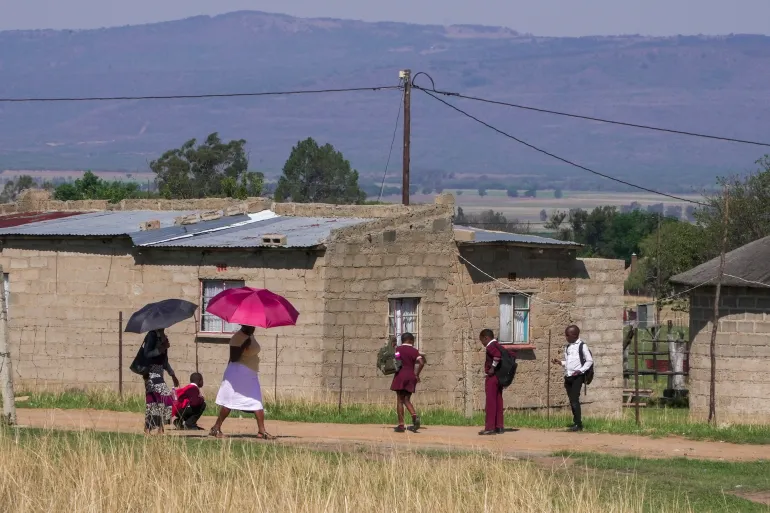Johanna Motlhamme, a 74-year-old grandmother, has spent over a decade fighting to reclaim her family home in Soweto after it was sold without her consent, leaving her and her four children without their rightful inheritance. Her struggle underscores the lingering impact of apartheid-era laws and the complications introduced by post-apartheid legislation, according to housing activists.
Motlhamme’s story begins in 1977, when she married her husband under a community of property arrangement, which entitled both spouses to equal ownership of their assets. The couple moved into a small two-bedroom house in Soweto, where they lived together until their divorce in 1991. At the time, Black South Africans were prohibited from owning land in urban areas, with the most they could hope for being long-term leases.
The 1991 Upgrading of Land Tenure Rights Act aimed to rectify these injustices by allowing Black leaseholders to own their homes. However, the law only recognized men as the heads of households, effectively sidelining women like Motlhamme from property ownership.
Although Motlhamme was entitled to half the ownership of the home following her divorce, the property was registered solely in her ex-husband’s name when the law came into effect in 2000. After his death in 2013, his second wife sold the house, leaving Motlhamme and her children with no legal claim to their former home.
Motlhamme’s eldest son, Elliot Maimane, now 50, recalls the turmoil that ensued after his father’s death. “My three siblings and I were kicked out when our father died. His second wife later sold the house,” he told Al Jazeera. The family’s inability to prevent the sale stemmed from Motlhamme’s exclusion from the title deed due to her gender.
Motlhamme’s plight is not unique. According to a report by the Socio-Economic Rights Institute (SERI), many Black families in South Africa’s townships face similar challenges, grappling with tenure insecurity and the threat of homelessness. The report highlights how the Upgrading Act inadvertently reinforced patriarchal norms, depriving women of their rightful inheritance.
In 2018, South Africa’s Constitutional Court addressed these gender disparities, ruling that the Upgrading Act’s provisions regarding property inheritance were “constitutionally invalid.” The Court ordered amendments to the act, enabling women to claim their rights to family homes even if their names were not on the property permit or title deed.
Despite these legal victories, many affected families continue to face uphill battles in reclaiming their homes. Motlhamme’s case is now being supported by SERI, which argues that the discriminatory application of the Upgrading Act perpetuated the injustices women faced under apartheid.
Housing disputes in Johannesburg’s townships have become increasingly common, often involving women who are evicted or face prolonged legal battles over property rights. Busisiwe Nkala-Dlamini, head of the School of Human Community Development at the University of the Witwatersrand, notes that housing disputes are a frequent issue among the clients seeking social work and legal services.
For families like Motlhamme’s, the legal process can be long and disheartening. Maimane is eager for the courts to resolve the matter quickly, hoping to restore his mother’s ownership of the house. “The system was not fair; it was one-sided,” he said. “We just want everything back to normal. We want to have our childhood home back.”
As South Africa continues to grapple with the legacy of its apartheid past, cases like Motlhamme’s illustrate the ongoing struggle for land and housing rights, particularly for women who have been historically marginalized by both colonial and post-apartheid laws.



